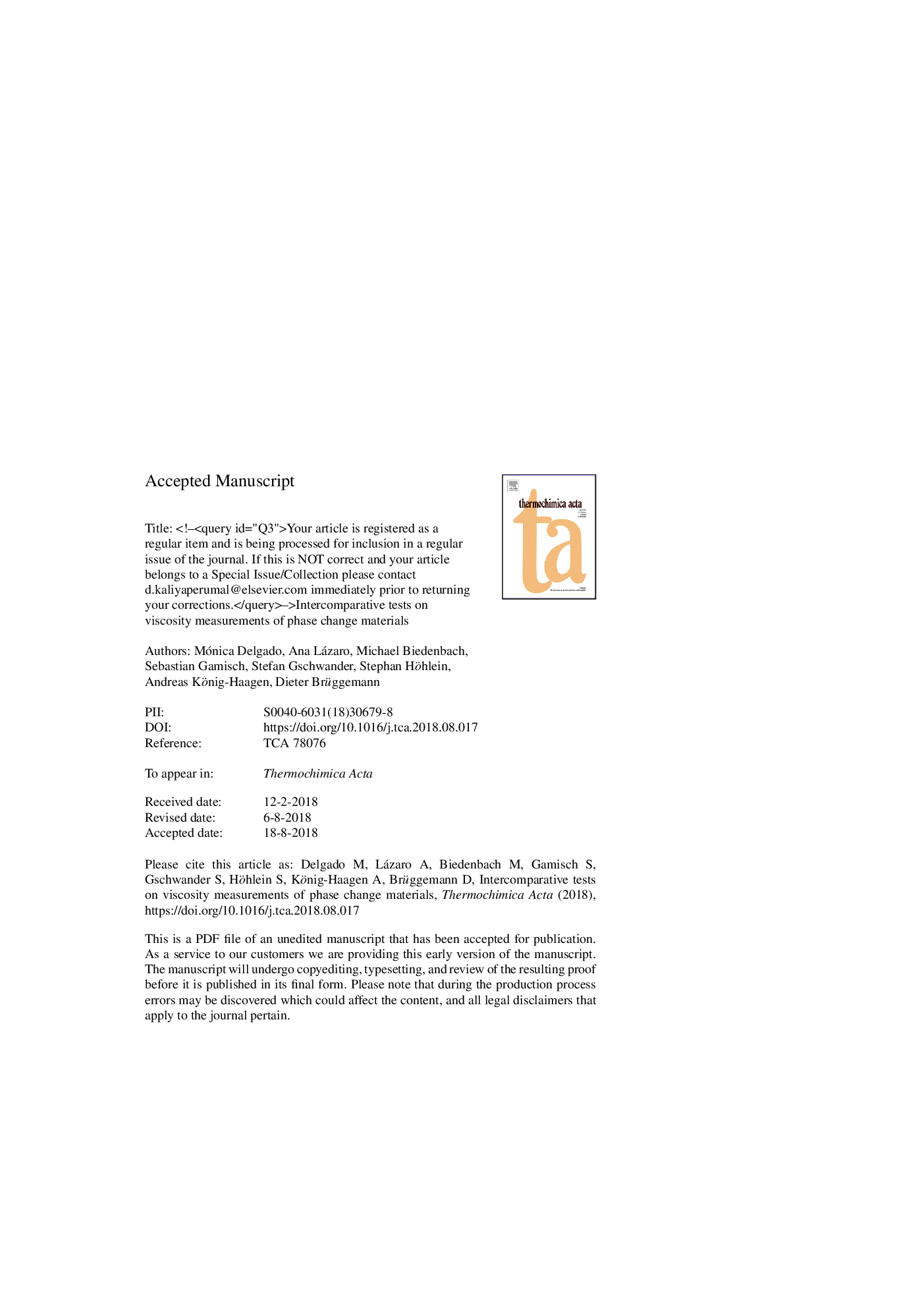| Article ID | Journal | Published Year | Pages | File Type |
|---|---|---|---|---|
| 9952660 | Thermochimica Acta | 2018 | 26 Pages |
Abstract
Phase change materials (PCM) are capable of storing thermal energy within a small temperature range due to their high latent heat. When designing a thermal energy storage (TES) system with PCMs, besides the phase change enthalpy, thermal conductivity and density, viscosity based on temperature must be characterized to take into account natural convection. Taking advantage of the facilities of the different research groups working within an international network, a set of intercomparative tests were executed to determine the viscosity based on the temperature of two PCMs: octadecane and the commercial paraffin RT70 HC. Three laboratories have participated, which have used three different rheology equipments: two controlled stress rheometers, AR-G2 from TA Instruments and MCR 502 from Anton Paar and a translational rheometer, IMETER. The intercomparative tests were executed based on a starting methodology approach defined previously by some of the authors. The highest deviations were observed when temperature-controlled geometries or temperature hoods were not used at elevated test temperatures due to the temperature gradients within the sample, as consequence of the heat losses due to the room temperature. Consequently, special attention must be focused on the temperature control, since a uniform temperature throughout the sample should be guaranteed.
Keywords
Related Topics
Physical Sciences and Engineering
Chemical Engineering
Fluid Flow and Transfer Processes
Authors
Mónica Delgado, Ana Lázaro, Michael Biedenbach, Sebastian Gamisch, Stefan Gschwander, Stephan Höhlein, Andreas König-Haagen, Dieter Brüggemann,
